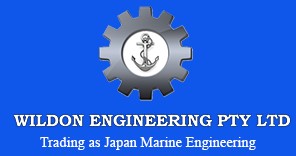Yanmar’s Corporate Social Responsibility: A Sustainable Future in Technology
Blog | October 15th, 2018Company shortsightedness has become a real issue in this day and age. From a system sustainability standpoint, that’s an unforgivable ideology. Worse still, though, internationally prominent corporations have been known to suffer from such moments of myopic disdain. Yanmar’s corporate social responsibility, like a living and breathing organism, can’t afford such mistakes, not when their engineering assets literally criss-cross the globe.
An Omniscience-Tuned Mission Statement
No-one can be everywhere, unfortunately. However, at a time when the globe’s shipping lanes are experiencing stress, as caused by our overpopulated society, such all-knowing knowledge would be welcome. Acting instead on leading-edge corporate solutions, this unrealistic expectation is replaced by a mission statement that promotes an entirely sustainable product range. Addressing all of our tomorrows, a future that’s straining at the bit to escape our guiding hands, Yanmar’s Corporate Social Responsibility mandate begins at the concept stage, not with existing technologies, although these, too, are receiving sustainability upgrades.
Confronting Global Issues
Unlike most problems, the issues here are easy enough to identify. World hunger is prevailing, pollution is eating up land and oceans, and energy consumption problems are out of control. Intimately familiar with such matters, Yanmars’ Corporate Social Responsibility (CSR) measures begin at the drawing board. With more fuel efficient engines, environmentally safe engineering metals and plastics, superior sea-protecting equipment arrays, and more, the goal is to first protect aquatic lifeforms. But a sustainable globe doesn’t have any true endpoints. Everything is connected, from those aquatic lifeforms to the river estuaries and land masses that interact with our seas and lakes. Having talked at some length about environmental responsibilities, what can Yanmar do to help?
Enacting Yanmar’s Corporate Strategies
While the engineers and system designers introduce their fuel efficient designs and ballast-neutralizing solutions, the battle continues on a separate front. Globally, there’s the Yanmar Agri Solutions initiative, which has its roots in Japan. Structured to tackle food and population-related issues, the measures initiated here are already having a positive impact on world hunger problems. Mechanizing old agricultural processes in third-world areas, harnessing sustainable power generating systems, and optimizing human solutions for human problems, the work is, of course, ongoing.
At the end of the day, the CSR exists to enrich everyone’s lives. Even from a myopic viewpoint, everything possible is being done right now to improve engine and generating designs. But that move applies to the shipping industry. Yanmar is now a major global player, and ships, plus their many shipping lanes, are one part of the many moving parts in the company’s sustainable-centric mission statement. For farms and village generators, food production and sustainable power systems and so much more, the globally responsible corporation is opting for a solution-driven, lifestyle maximizing strategy that’ll protect all of our tomorrows.
Optimized by NetwizardSEO.com.au
Recent Posts
- Yanmar Diesel Generators: Planned vs Predictive Maintenance Strategies for Remote Operations
- Mareflex SOLAS Marine Tapes: Safety Applications on Marine Vessels
- Yanmar Propulsion Systems: FPP vs CPP Propellers for 6EY and 6N Series Fuel Efficiency
- Mitsubishi K.K. Purifier Separator: The Key to Cleaner Fuel and Smoother Operations
- Kemel Air Seal Retrofits: Leak-Free Stern Tube Seals and Reduced Lube-Oil Risk
- Yanmar Auxiliary Generators: Sizing for Reefers, Hotel Loads, and Dynamic Positioning Systems
- Water Lubricated Stern Tube Bearing (EVR): Proven Technology for Smooth and Quiet Operations
- Marine Spare Parts Australia: Genuine Components for All Vessel Types
- Yanmar Diesel Generators – Powering Remote and Off-Grid Operations
- Authorised YANMAR Parts Supplier in Australia – Genuine Components Guaranteed
